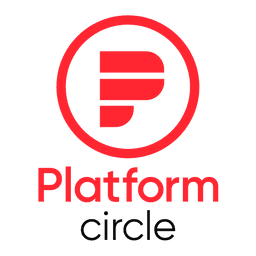Have you been struggling with handling complex projects as a project manager or at your organization? We understand how stressful it can be to not meet your targets or to lag behind on projects. This post will provide you with a solution to this challenge.
Project management is no easy task. Complexity can quickly spin out of control. When this happens, it could lead to chaos and confusion. Teams struggle to keep up with multiple tasks, deadlines, and stakeholders as projects grow in scope and scale. Without a clear framework for organization and collaboration, even the most experienced project managers can find themselves drowning in a sea of details. But what if there was a way to tame the chaos and bring order to even the most complex projects?
This post will introduce you to a tool that can solve this problem. Platform Circle’s robust project management feature offers the perfect solution to this challenge. Continue reading to learn more about how this tool can help you simplify complex projects.
What is a Complex Project?
To begin our discussion, we need first to understand complex projects. A complex project is intricate and multifaceted, involving numerous tasks, stakeholders, and variables that require careful coordination and management. Such projects often have far-reaching goals, tight deadlines, and limited resources, making them challenging to execute and manage. They can arise in various industries, such as construction, software development, event planning, or research and development.

A classic example of a complex project is the development of a new smartphone or a car. This project involves multiple teams working together, including design, engineering, software development, testing, and manufacturing. The project requires coordinating numerous tasks, such as creating prototypes, testing hardware and software components, ensuring compatibility with various networks and operating systems, and meeting strict deadlines for release. Additionally, the project involves multiple stakeholders, including investors, customers, and suppliers, each with their expectations and requirements.
Effective management of complex projects like this requires a robust framework for organization, collaboration, and tracking progress to ensure successful delivery. With these comes several challenges, many times unforeseen. To efficiently manage and complete the project, you need the right tools. We will show you the perfect tool in this post; continue reading.
The Complex Challenges of Managing Complex Projects
Managing complex projects presents unique challenges that can test even the most experienced project managers. These challenges reveal the difficulty of managing complex projects. Effective project management requires a deep understanding of these challenges and the skills to mitigate them.
By acknowledging and addressing these challenges, you can develop strategies to overcome them and ensure successful project delivery as a project manager. That being said, here are five common challenges that project managers face when managing complex projects:
Scope Creep
Complex projects often involve multiple stakeholders with competing demands, leading to scope creep. This occurs when the project’s scope expands beyond its original boundaries, causing delays, budget overruns, and team frustration. Effective scope management is crucial to preventing scope creep and ensuring the project stays on track.
Task Interdependencies
Complex projects involve numerous tasks that are interdependent, meaning that delays in one task can have a ripple effect on the entire project. Identifying and managing these interdependencies is essential to maintaining the project timeline and avoiding costly delays.
Team Collaboration and Communication
Complex projects require collaboration among diverse teams, including technical, creative, and business stakeholders. Ensuring effective communication and collaboration among team members is crucial to preventing misunderstandings, errors, and delays.
Risk and Uncertainty
Complex projects are inherently risky, with numerous variables and uncertainties that can impact the project’s outcome. Identifying, assessing, and mitigating risks is essential to minimizing their impact and ensuring project success.
Stakeholder Expectations
Complex projects involve multiple stakeholders with competing expectations, demands, and priorities. Managing these expectations and ensuring that the project meets stakeholder needs is crucial to achieving project success and maintaining stakeholder satisfaction.
Consequences of Poor Project Management
Poor project management refers to the inadequate planning, coordination, and control of project activities, resources, and stakeholders, leading to inefficient use of time, resources, and budget. It could manifest in different ways in terms of complex projects. Some of the most common of these include:
- Lack of clear goals, objectives, and scope definition.
- Inadequate risk assessment and mitigation strategies.
- Need for more communication and stakeholder engagement.
- Poor timeline management and deadline tracking.
- Inadequate quality control and assurance processes.
- Adapting to changes and evolving project requirements.

Poor project management can have far-reaching consequences that affect the project, the organization, and its stakeholders. Here are five significant consequences of poor project management:
Delayed Completion
Poor project management delays project completion. The result is missed deadlines, lost opportunities, and reduced market share. Delays also lead to increased costs, as resources are tied up for longer periods.
Budget Overruns
Ineffective project management can lead to cost overruns. This is mainly because changes occur, resulting from the accumulation of errors and reworks. The changes ultimately result in financial losses. They could also cause reduced profit margins and decreased investor confidence.
Reduced Quality
When you manage a project poorly, it often compromises quality. A typical case is when shortcuts are taken to meet deadlines or stay within budget. This can lead to defects, errors, and a final product that fails to meet stakeholder expectations.
Team Demotivation
Poor project management can demotivate team members, resulting in decreased morale, reduced productivity, and increased turnover. If teams feel their efforts are not valued or recognized, they will likely become disengaged, easily harming the project and the organization.
Reputation Damage
Repeated instances of poor project management can damage an organization’s reputation. This makes it harder to attract new clients, talent, and investors. A reputation for poor project management can also lead to reduced customer loyalty and retention.
The Solution: Platform Circle’s Project Management Feature
In the face of complex project management challenges, teams need a reliable and robust tool to streamline their workflows, enhance collaboration, and drive success. Such a tool will save them from the rigors of poor project management and the challenges that accompany complex projects. Allow us to introduce you to the perfect solution, Platform Circle’s robust project management tool.

Platform Circle is a cutting-edge productivity solution designed to tackle the intricacies of complex projects with ease. At its core, Platform Circle’s project management feature offers a comprehensive platform for teams to plan, organize, and deliver projects efficiently. This feature is designed to empower teams to achieve more quickly. By providing a centralized hub for project management, Platform Circle helps teams overcome the challenges of complex projects, ensuring successful outcomes and driving business success.
With this feature, teams can:
- Create and assign tasks with ease, set deadlines, and track progress in real time.
- Visualize project workflows with more ease.
- Collaborate seamlessly through built-in messaging, file sharing, and commenting.
- Track project performance with customizable dashboards and reports.
- Integrate with popular tools and services like Google Drive, Trello, and Slack.
By leveraging Platform Circle’s project management feature, your team can experience numerous benefits. Below are some of the top benefits of making use of Platform Circle:
- Improved project visibility and transparency
- Enhanced team collaboration and communication
- Increased productivity and efficiency
- Better decision-making with data-driven insights
- Scalability and flexibility to adapt to changing project needs
Conclusion
Complex projects can be overwhelming and challenging to manage, but with the right tools, teams can achieve success and drive business results. This post has described complex projects and the challenges that they present. It has also introduced you to Platform Circle’s project management feature, a tool that can help simplify complex projects. This solution provides a comprehensive platform for teams to plan, organize, and deliver projects efficiently.
With its intuitive interface, robust features, and scalability, Platform Circle is the ultimate solution for teams looking to streamline their project management processes. Click this link to get started with this tool right away.




